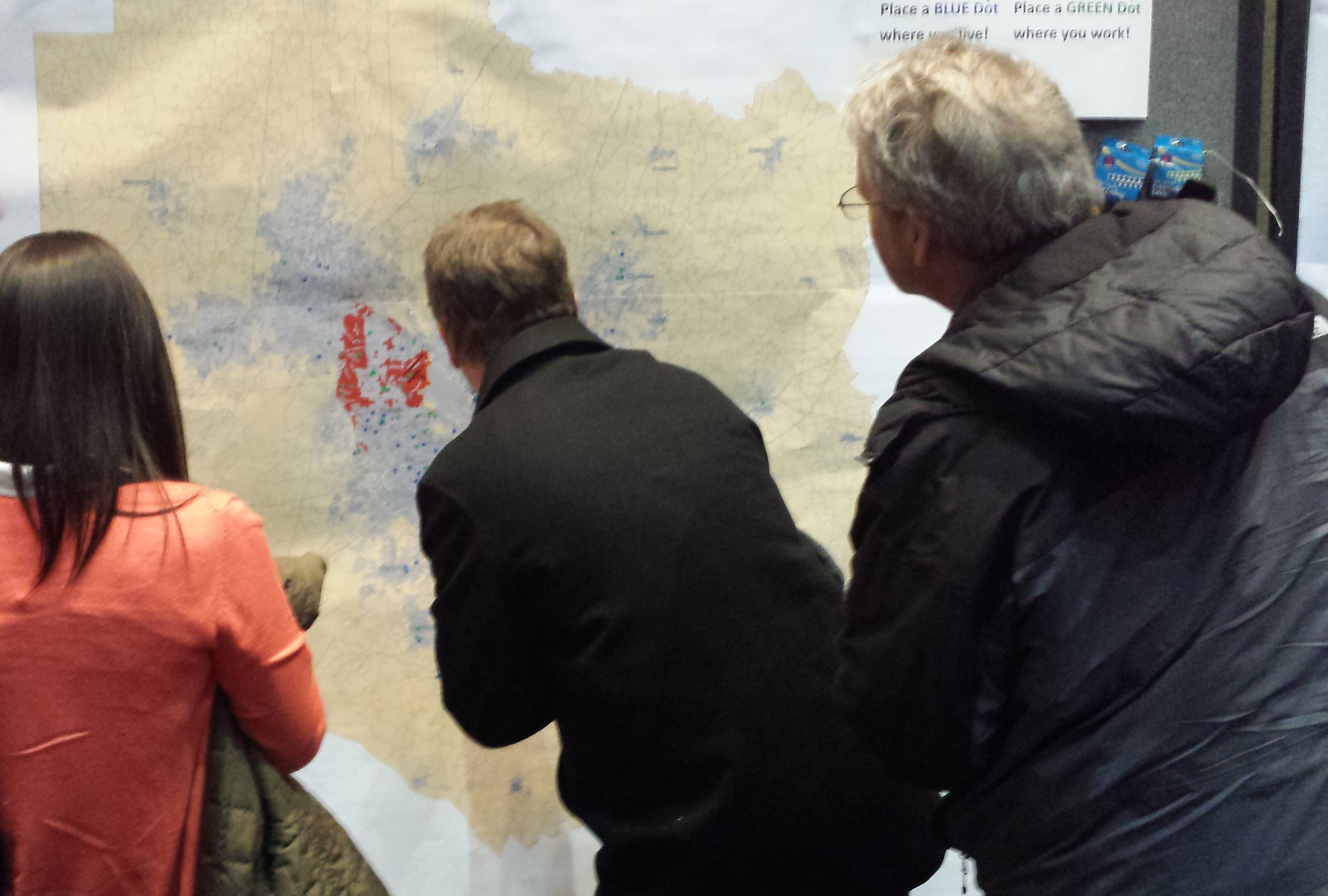A Booming North Carolina County Presses Reset on Transit Planning

Fayetteville Street in downtown Raleigh, North Carolina, the commercial center of Wake County. John Wollwerth / Shutterstock.com

Connecting state and local government leaders
It’s too early to talk about specifics but Wake County knows it needs a strong long-range plan to be regionally competitive and attract top talent that favors ‘liberty’ of transportation choice.
GovExec State & Local has been in North Carolina this week checking out some stories. Our other coverage: Here's our report from Cary on its new Aquastar system and our field trip to Durham to check out the infamous 11-foot-8 Bridge.
RALEIGH, N.C. — A nationally recognized transit planning consultant didn’t have many answers for a large gathering of local elected officials, civic leaders, community activists and residents gathered in a crowded convention center ballroom in North Carolina’s capital city for a “transit kickoff” meeting on Monday night.
There were no grand visions, no lines drawn across county maps showing where new bus lines might go or where a future light rail line might be built.
In fact, Jarrett Walker, the Oregon-based planning consultant and author of the blog and book Human Transit who is working closely with Wake County on its new transit planning efforts, barely mentioned the term “light rail,” instead talking about transit in more generic terms.
That’s not to say there won’t be a light rail line or commuter rail system, like the ones proposed in a Raleigh-area 2011 transit plan that didn’t go anywhere.
Walker said it’s just a bit too early to talk about specific modes or granular localized concerns about things like bus stop improvements.
The transit-planning airplane, he said, isn’t yet coming in for a landing. Plans—all of which depend on funding—will come more into focus as the plane descends. First things first: Everyone needs to board the plane.
Walker spoke with what he described as “an intentional altitude” and came with a series of questions that he hoped would focus the future public discussion in the process to transform the county’s public transit system and change some conceptions of what transit is, what it isn’t and ways to look at planning objectives and priorities.
In one sense, Walker was there to measure expectations from the start and school the crowd on critical planning concepts that will strongly influence what kind of transit network options the county could pursue.
The big unavoidable question: Will Wake County focus on improvements in higher-density areas with high-ridership potential or develop a system that provides access to all areas of the sprawling county, which would inevitably reduce resources to support higher transit frequency elsewhere.

Audience members at Monday night's Wake County transit kickoff meeting place dots on a county map noting important places transit improvements should serve. (Photo by Michael Grass / GovExec.com)
The answers Walker and his colleagues hear from county officials, civic leaders, community stakeholders and residents in the coming months will shape the vision, which he noted will be the county’s plan and not his own. “The plan is going to be yours,” he said. “It’s going to belong to Wake County.”
Wake County Manager Jim Hartmann, in his introductory remarks, said the county was using a “slightly different approach” to the long-range transit planning process this time around.
It might also be viewed as a total reset and a chance to come out with a stronger strategy than the 2011 plan, now a just reference point in the discussion. The new planning effort will include a multi-month public engagement process that will launch in the new year and a transit improvement plan targeted for completion in the summer.
Leaders in Wake County—the state’s second-most populated jurisdiction, which includes the state capital, its sprawling suburbs and exurbs and a little more than 1 million residents—know that they have to do something to improve their local and regional transportation system.
They could be at a competitive disadvantage regionally if they fail to improve public transit and change the perception that Raleigh-area residents and visitors need to depend on a car to get around.
Walker told the crowd that being stuck with a grueling car commute is increasingly viewed as lost productivity, especially for millennial workers, who are turning away from the suburbs and embracing an urban walkable or transit-oriented lifestyle more than one that centers on driving a car.
Walker asked: “Are you going to meet the market for urban living?” Is Wake County was going to be place that is “attracting the talent that is attracted to dense cities?”
Transit choice is only one factor that influences the answers to those larger economic development questions, Walker said, but transit can play a critical transformative role.
Wake County’s peer urbanized jurisdictions in the state, including Durham County and Mecklenburg County, have taken big steps to improve public transit. Walker reminded Wake’s leaders of that reality and what it means for their growing county’s competitiveness and regional leadership.
“You have a neighboring county that is implementing a transit plan,” Walker said, noting Durham County’s green-lighted plans for a light rail line connecting the city of Durham with the University of North Carolina at Chapel Hill in Orange County.
In Charlotte, Mecklenburg County leaders have built a light rail line and have plans to extend it.
Meanwhile, Wake County has a fairly limited bus network, with the vast majority running at low intervals. Walker said buses that only come once an hour are ineffective. “That is not a frequency that is liberating.”
In a region dominated by car drivers in a state ruled by Republicans in the legislature and governor’s mansion, Walker talked a lot about how transit choice is part of the concept of liberty.
But achieving that liberty of transportation choice requires community investment and political commitment to make it happen. It also requires money, most likely in the form of a half-cent increase in the local sales tax, which would have to be authorized by voters.
Any plan would also require support from the state. And that’s complicated with North Carolina’s highly charged political climate—dominated by a strong urban-rural divide—that has created a lot of uncertainty for many local initiatives and priorities.
Democrats now dominate local politics in the Raleigh area. In November, Wake County voters swept out every Republican from the board of commissioners, some of whom were seen as obstacles to moving forward on local transportation, education and other quality-of-life issues.
Caroline Sullivan, vice chair of the Wake County Board of Commissioners, said in an interview before the transit kickoff that the new county board “has a different outlook” on transit and other priorities.
Regardless of the state’s complicated political realities, Wake County can’t go it alone on its plans. “The new reality forces you to work together,” she said. “You have to.”
Monday’s transit kickoff meeting was an important first step to setting the tone of what’s to come in the planning process, according to Sullivan. “I have faith that if we as a community get the right people working on something together and engaging the public,” she said, “people will support some of these quality of life issues.”
(Top image by John Wollwerth / Shutterstock.com)



